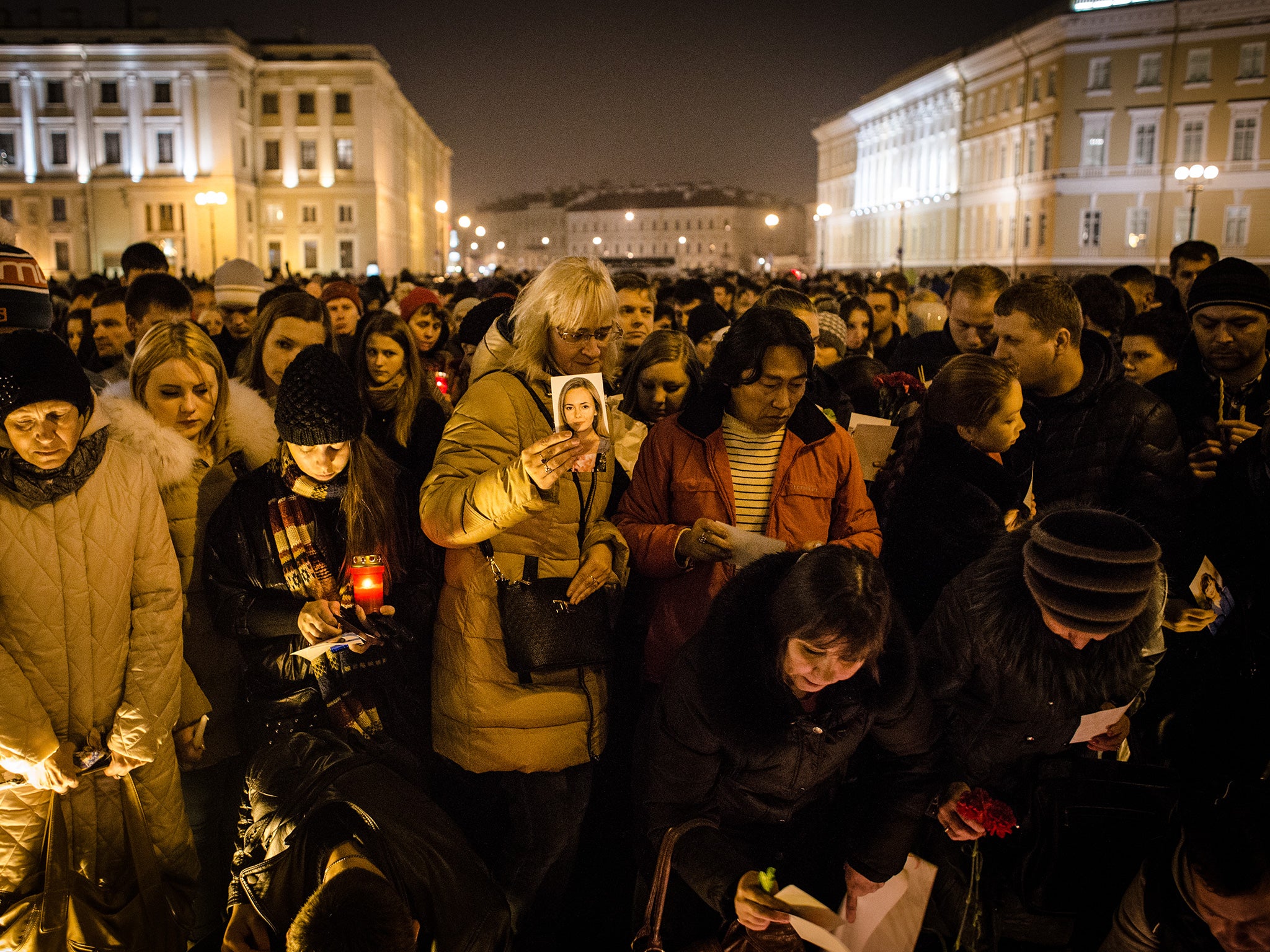Egypt plane crash: World Travel Market to open in London but tragedy in the Sinai likely to darken the mood

Your support helps us to tell the story
From reproductive rights to climate change to Big Tech, The Independent is on the ground when the story is developing. Whether it's investigating the financials of Elon Musk's pro-Trump PAC or producing our latest documentary, 'The A Word', which shines a light on the American women fighting for reproductive rights, we know how important it is to parse out the facts from the messaging.
At such a critical moment in US history, we need reporters on the ground. Your donation allows us to keep sending journalists to speak to both sides of the story.
The Independent is trusted by Americans across the entire political spectrum. And unlike many other quality news outlets, we choose not to lock Americans out of our reporting and analysis with paywalls. We believe quality journalism should be available to everyone, paid for by those who can afford it.
Your support makes all the difference.At 9am on 2 November, British Airways flight 2560 will depart - fog permitting - from Gatwick to Sharm el Sheikh on Egypt’s Red Sea. One hour later, the doors of one of the tourism industry’s biggest international events, World Travel Market, will open in London. But the tragedy in the desert of central Sinai is likely to darken the mood in both locations.
On 1 November, Russia mourned the 224 victims aboard flight 9268, who died early on 31 October when their charter plane from Sharm el Sheikh to St Petersburg crashed shortly after take-off. It was the country’s worst-ever aviation disaster.
As relatives grieved for their loved ones, the names of the dead were read out, one by one, at church services across Russia.
At the crash site, which is spread across 20 square kilometres, Egyptian air-accident investigators were joined by officials from Russia, as well as experts from the plane’s manufacturer, Airbus.
Alexander Neradko, the head of Russia’s federal aviation agency confirmed at a press conference that: “The aircraft disintegrated in the air, at a high altitude.”
Even though the two “black boxes” were found quickly and are now being analysed, Egypt’s President Sisi said the investigation could take months.
Both Russia and Egypt insist that a mechanical fault was responsible for the disaster, but speculation about other possible causes persists. The crash took place over an area where Islamists have been fighting the Egyptian military for several years.
Professor Michael Clarke, director-general of the Royal United Services Institute, told BBC Radio 5 Live he believed terrorists could be responsible: “If we have to guess at this stage I’d say it’s much more likely to have been bomb on board rather than a missile fired from the ground.”
No terror group has made a plausible claims for causing the crash, however, and the airspace over the area where it happened remains open.
Airlines make individual decisions about avoiding areas of conflict, based on their own risk assessments. Air France, Lufthansa and Emirates said they would instruct their pilots to avoid the Sinai until more is known about the crash.
British Airways does not discuss its flight paths. Its flight on 1 November to Cairo, BA155, departed late in the evening from Heathrow, but the 90-minute delay was simply due to fog in London. The flight plan for today’s Gatwick-Sharm el Sheikh service is likely to take the aircraft over Athens and Cairo, then along the Gulf of Suez to the tip of the Sinai peninsula - well away from the scene of the crash.
BA's service to the Red Sea was launched last month in a bid to capitalise on what was expected to be a resurgence in tourism to Egypt. The Egyptian delegation at the World Travel Market in London had planned to reveal on 2 November a new marketing campaign to attract back tourists. That has been put on hold.
The spectre of terrorism has haunted Egypt’s tourist industry for two decades. Whatever the eventual cause of the crash, the tragedy has drawn attention once again to the nation’s precarious security situation. The Foreign Office advises against travel to the entire Sinai, “with the exception of the area within the Sharm el Sheikh perimeter barrier” - a ring of steel that includes the airport and the main resort areas.
Egypt's cabinet stated on 1 November that 163 bodies out of 224 people had been recovered from the crash site.
Workers at the Zeinhom morgue in Cairo found themselves overwhelmed as the bodies were brought in. By 7pm on 31 October, 34 corpses had arrived at the morgue. But by 10pm, ambulances lined up on the crowded Zeinhom streets to bring in another 80 corpses- many of which were not whole.
“The majority were in pieces,” said one morgue worker, who requested not to be named. “Maybe 75 of the ones we have are full corpses. Some are burnt, others have blunt trauma wounds and fractured skulls.”
He continued: “the others were mainly arms and legs. It could be that these parts belong to some of the corpses, but we don't know without DNA analysis.”
Examiners at the Zeinhom morgue, as well as three other hospitals around Cairo, were given the gruesome task of trying to regroup dismembered body parts for DNA identification. Morgue workers told The Independent that DNA testing will take two to three weeks.
“One leg arrived at the hospital alone,” said Dr Hesham Zaazou, Director of the Nasser Institute Hospital.
The first bodies were due to be repatriated to Russia at 8pm on 1 November.
Join our commenting forum
Join thought-provoking conversations, follow other Independent readers and see their replies
Comments